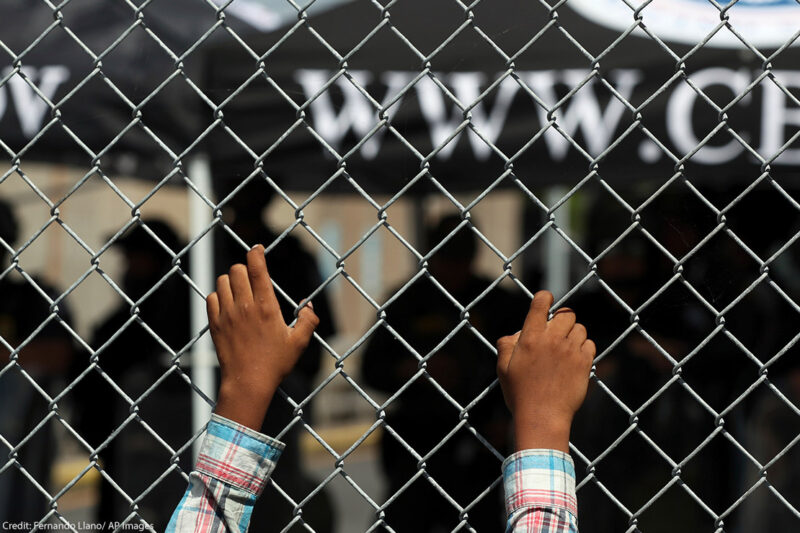Trump’s Remain in Mexico Policy is at the Supreme Court. Here’s What's at Stake.


This week the Supreme Court will hear a case that could entrench the Trump administration’s “Remain in Mexico” policy, which forces people seeking asylum to await their court dates in dangerous conditions in Mexico. The Remain in Mexico Policy, misleadingly dubbed the “Migrant Protection Protocols” created a humanitarian disaster at the border and has been the subject of ACLU lawsuits since it was first implemented in 2019.
President Biden made a to end Remain in Mexico, recognizing the grave harm it subjects people seeking asylum to. Biden followed through on his promise and terminated the policy. But Texas and Missouri , and a federal Texas district court judge ordered the federal government to restart the program.
The Biden administration has tried multiple times to end the policy, including by asking the to on an emergency basis – a move the ACLU supported in an amicus brief – but the Court declined to do so. The Biden administration has been forced to resume the policy while litigation continues.
Biden v. Trump has now made its way up to the Supreme Court to be heard on the merits. Here is what’s at stake.
The ability of a president to undo the policies of a former administration
The lower court decision under review by the Supreme Court would effectively keep the Trump administration’s shameful Remain in Mexico policy in place indefinitely, even though the policy did not exist under multiple administrations (including the Trump Administration before 2019).
This decision is contrary to a fundamental principle of a democracy: A new administration, selected by the people, should be empowered to reject its predecessor’s policies and adopt those it believes are in the public interest. The government is, of course, constrained by statutes, including the requirement to provide reasoning for its policy decisions. But by upending the normal rules that govern agency decisions and unjustifiably locking in Trump’s policy, the lower court overstepped its role as a neutral enforcer of the rules.
The anti-democratic implications of that holding are deeply troubling, and the Supreme Court must reject it.
Whether the government is required to detain all asylum seekers
In ordering the Biden administration to resume the Remain in Mexico policy, the lower courts held that immigration law limits the federal government to only two options when people seek asylum at the border: detain them or forcibly return them to Mexico before their hearing. Since the Department of Homeland Security (DHS) lacks capacity to detain all people seeking asylum, the judge reasoned that the only choice would be to send them to Mexico while their cases proceed.
This is a patently false choice. Congress has stipulated that DHS has broad power to avoid unnecessarily detaining people and to release people to their networks of care while their immigration cases proceed. In fact, all presidential administrations have exercised broad discretion to release people rather than restricting DHS to two binary choices – including the Trump administration itself.
The lives of asylum seekers
Most importantly, at stake is whether the U.S. will continue to be a country that allows people fleeing persecution to seek safety inside its borders. Remain in Mexico, and other related policies, like Title 42, which has shut down access to asylum at the southern border for over two years under the guise of public health, are attempts to dismantle longstanding U.S. asylum policy that uphold our commitment to international human rights norms.
During the two years the policy was in effect under Trump, over 1,540 cases of kidnappings, murder, torture, rape, and other forms of violence against asylum seekers returned to Mexico. U.S. and Mexican authorities have failed to establish adequate housing options or to provide access to medical care and work, leaving people vulnerable to transnational cartels who prey on migrants. asylum seekers returned to Mexico have faced particularly severe risks.
If the Supreme Court prevents the Biden administration from ending Remain in Mexico, it will enshrine a new legacy for the United States – a legacy of turning its back on international commitments and sending people directly into harm’s way.

